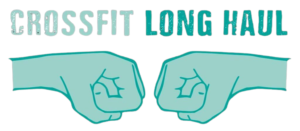 With the beginning of a fresh year already upon us, it’s a time when we like to review our progress and set new goals to achieve. Improving our health is often high on the list and so it should be. Afterall, what would your life look like with poor health? Not so great, I imagine.
With the beginning of a fresh year already upon us, it’s a time when we like to review our progress and set new goals to achieve. Improving our health is often high on the list and so it should be. Afterall, what would your life look like with poor health? Not so great, I imagine.
Exercise is usually the easy part for most people, but many of us struggle to get our nutrition under control. Initially this will be difficult – we’re often fighting to change habits that have developed over years (or even decades). Though as we make small changes over time, and keep moving forward towards healthy eating, it will get easier and easier until we’re no longer arguing with ourselves whether we should swing through our nearest takeaway drive-through on the way home. The cravings will subside and we’ll start feeling a whole lot better, physically and mentally.
While it is great that we can achieve healthy eating (and a healthy body to go with), we also need to make sure the need to eat healthy/clean doesn’t take over our lives and start to impact in a negative way. The health industry is huge at the moment and the temptation to take it to the next level is definitely surrounding us. There is a lot of information floating around about superfoods, which food (or food group) is making you sick, or which amazing new diet will be the answer to all your problems. It can be hard to sift through all of this information and figure out what is the best path for you. Each person is different and therefore should consult with a nutrition trained health professional.
It is also really easy to get caught up in the health movement and become a little too focused on diet and exercise. It should be a part of our daily routine, but not take over. A new eating disorder has even emerged in recent years – orthorexia. This is an obsession with healthy eating, where people become fixated on having to eat ‘clean’. This may include obsessively checking ingredient lists and nutrition labels, cutting out an increasing number of food groups (eg all sugar, all carbs, all dairy, all meat etc – not including vegetarians of course), an inability to eat anything but a narrow range of foods, and possibly body image issues. This may end up causing physical health issues, depending on how extreme the orthorexia is.
What comes out of this? Balance is key to success. The symptoms above may not sound too far from what your nutrition professional recommends. But there is a fine line between healthy eating and destructive eating. Remember this – both overweight and underweight people have increased risk factors for disease. You shouldn’t have to go to this extreme and there should still be room for enjoyment in your life. It’s totally fine for you to have a couple of drinks on the weekend or have a piece of cake at your friend’s birthday. As long as you are eating in a healthy way most of the time, these events won’t damage your health. They will also help you to feel normal, included in social activities and stop the blues that come when you feel like your diet is really restrictive. A diet that is too restrictive leads to frustration, cravings, bingeing and giving up. We don’t want that.
So set those goals for 2020 and let us help you tick every last one off without killing your fun in the process!
Book your Free No Sweat Intro With Us >>>
Written By: Danielle Jose / Nutrition Coach at CrossFit Long Haul
